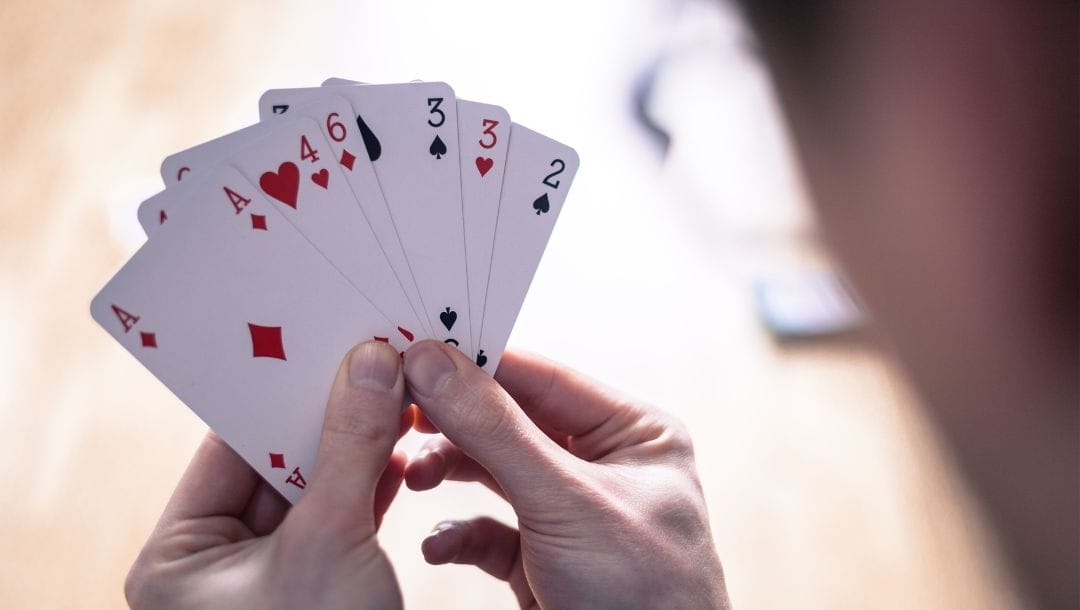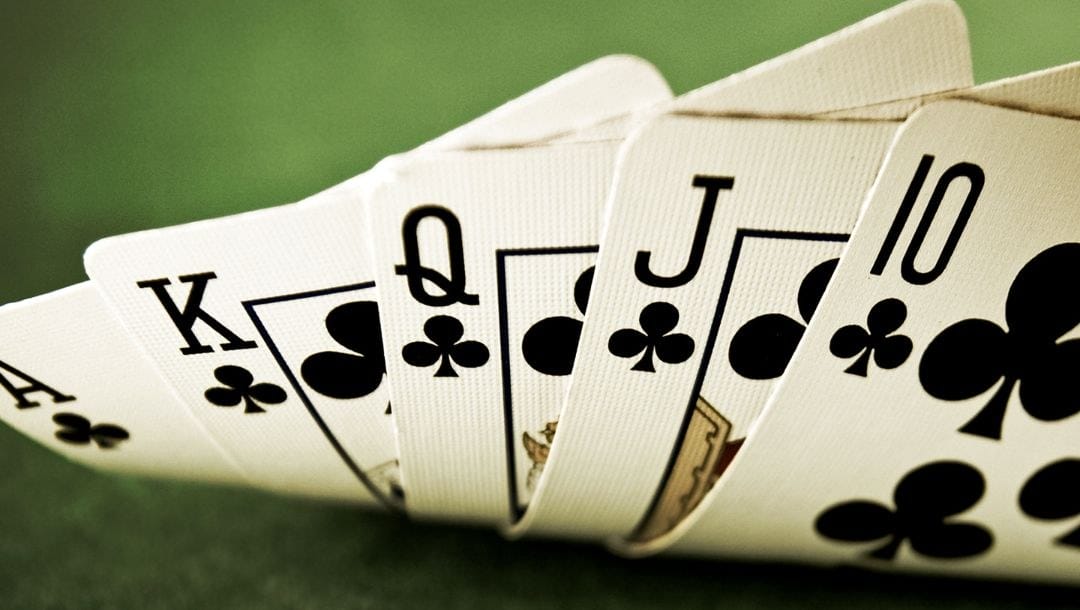Where does one start learning how to play poker? Here’s a beginner’s guide.
Learning Poker: Where Should You Start?

Poker is a captivating game. The strategy, the tactics and the psychological and mental work one needs to invest in playing the game all make it enthralling and keep audiences at the edge of their seat. If you’ve been captivated by the game — whether by witnessing an online poker game among friends or at any of the major poker tournaments — learning how to play poker will greatly increase your enjoyment of the game. That being said, if you’re keen to begin your journey but don’t know where to start, this guide is exactly what you need. This blog post explores how to play poker, the basics and some slightly more advanced ideas such as Game Theory Optimal (GTO.)
As Julie Andrews’ character says in “Sound of Music,” “Let’s start at the beginning. A very good place to start.” Learning and memorizing poker basics, such as the hands and their ranking, the table positions and what they mean, is a great place to start. Familiarizing yourself with the sundry terminology used in the game will also go a long way. The vast number of online resources on the game, such as video tutorials, courses and books, are sure to help you get going. Having a good grasp of how to play the poker basics gives you a solid foundation for further exploration.
One of the best ways to learn something is by observing how it’s done. For this reason, one of the best ways to learn poker is by watching experts play, whether in an online poker tournament or at a land-based casino. Observing them will expose you to the tricks of the game and you’ll gain a wealth of insights about various aspects of strategy and tactics.
These two components of poker are integral to your development as a committed poker player. While each is demanding on its own, your initial learning should include a bit of both. Strategy lets you plan your game as a whole, from start to finish. It’s all about the choices you make after taking into consideration factors such as the pot size, the position of the table, stack size, opponents’ playing style and so on.
Tactics, on the other hand, are the exact actions you take to execute your strategy as you navigate every hand you have been dealt. Tactics are applied on a play-by-play basis and shouldn’t be thought of as cookie-cutter rules that you take to the game. For instance, while playing a round of Texas Hold’em you do the math and then realize that the set of hands is bad. One tactic can be to fold in order to cut your losses instead of calling or raising the bet and losing more.
The last basic rule is that, as much as watching the masters play may be insightful, nothing lets you learn how to play poker faster than trying your hand at the game. When you practice, you put the knowledge you’ve gained to the test and you’re able to quickly determine where you need to focus in order to improve your game. That’s why one of the pro tips is to sign up to sites where you can play poker online for really low stakes. There are several reasons for this, but aside from being able to play without the fear of being mocked for being a noob, putting money on the line, however little, will keep you invested in winning.
Poker Math: Why You Should Embrace the Numbers

When you hear things like frequencies, variance and odds, you may start panicking, especially if you were terrible at math in school. But you don’t need to panic. That being said, the fact that the math side of poker is being discussed separately shows how important it is.
While the math in poker can sometimes be complex, it needn’t be as difficult as it sounds. As long as you can do basic addition, subtraction and multiplication you’re good to go. The good news is that as time goes on and with a lot of practice, some of the math will become quite intuitive. Simply put, poker math is the calculation made to determine the probability of you or your opponent winning the game depending on a number of factors.
Being proficient in poker math will help you make informed decisions rather than depending on your intuition, which can sometimes be wrong. If you know the math, you will understand thighs such as your expected value (EV,) when to fold, call or raise, the pot size and so on. While playing poker intuitively can give you great wins, having a solid knowledge of poker math will give you an advantage any day.
Poker Folding Frequencies
Poker folding frequency is one of the important aspects of the game you should become familiar with. Folding frequency simply refers to the expected likelihood of a player discarding or turning in their cards to the dealer. It’s used to know how often and when a player will release their hand instead of increasing their bet.
In poker, folding is as important as calling or raising because knowing when to cut your losses will determine how profitable you’ll be in the long run. Your folding frequency says a lot about you. If you fold often, it shows other players that you’re conservative and you play it tight. On the other hand, if you fold less often, it could mean you’re not risk averse and your opponents may begin to consider you as unpredictable and aggressive.
Note that folding frequencies differ according to positions on the table. That being said, exploiting the numbers to your advantage is the hallmark of a seasoned poker player and should be the goal of any beginner.
Game Theory Optimal

One of the hottest concepts in the poker world is Game Theory Optimal. This strategy, underpinned by the study of game theory, is all about balanced and unexploitable play. While exploitative play bases action on tells and other perceived weaknesses of the opponent, GTO involves making choices that will achieve the best possible outcome using the given set of hands. In short, GTO-inspired play amounts to playing against the game rather than the opponent. Because GTO involves creating the perfect strategy, getting the values off hand is impossible and that’s why specialized software called “solvers” are used.
Learning GTO, even as a beginner, is important because it gives you a strong understanding of poker strategy. In addition to that, using GTO makes it hard for your opponents to exploit you since you’re always adjusting your hand ranges.
Play Poker Online at BetMGM
As mentioned, you won’t improve your game if you don’t try your hand at a few games — and where else to go than the King of Casinos? Register today to get 24/7 access to all kinds of poker online games ranging from No Limit Hold’em and Omaha to Seven-Card Stud. In addition to poker, you can also treat yourself to other fun casino games such as blackjack, baccarat, slots and many more.


